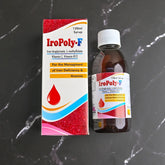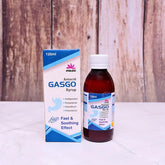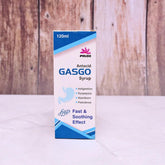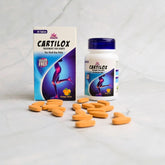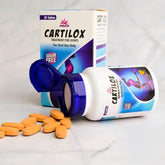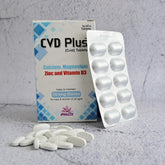Introduction
As the days grow shorter and the temperatures drop, the winter season casts a cozy, serene ambiance across the world. While winter brings with it a sense of calm and holiday cheer, it also brings a significant decrease in sunlight exposure. During these colder months, the sun sits lower in the sky, reducing the amount of natural light we receive. One crucial nutrient that often takes a hit during this time is Vitamin D. In this blog post, we'll explore why it's essential to get more Vitamin D during winter and how it can benefit your overall health.
Sunshine Vitamin:
Vitamin D, often referred to as the "sunshine vitamin," is unique because our bodies can produce it when exposed to sunlight. Ultraviolet B (UVB) rays from the sun trigger the synthesis of Vitamin D in the skin. During winter, the reduced sunlight exposure can lead to a deficiency in this vital nutrient.
Boosting Immune Health:
Vitamin D plays a crucial role in supporting the immune system. Research suggests that adequate Vitamin D levels can enhance the immune response, helping the body fight off infections and illnesses. As winter is notorious for flu and cold outbreaks, maintaining optimal Vitamin D levels becomes paramount in fortifying your immune defenses.
Combating Seasonal Affective Disorder (SAD):
Seasonal Affective Disorder, abbreviated as SAD, is a type of depression that occurs at a particular time of the year, typically in winter. One of the leading cause behind SAD is the lack of sunlight exposure, which affects the body's internal clock and certain neurotransmitters, including serotonin. Adequate Vitamin D levels have been linked to improved mood and can potentially alleviate symptoms of SAD.
Supporting Bone Health:
Vitamin D is vital for calcium absorption in the gut, which is essential for maintaining strong and healthy bones. A deficiency in Vitamin D can lead to brittle bones and an increased risk of fractures. During winter, when outdoor activities might be limited, it becomes even more crucial to ensure you're getting enough Vitamin D to support your bone health.
Reducing the Risk of Chronic Diseases:
Studies have indicated that maintaining sufficient Vitamin D levels might help reduce the risk of chronic diseases, including cardiovascular diseases, diabetes, and certain types of cancers. While more research is needed, the potential benefits of Vitamin D in preventing these conditions highlight its significance, especially during months when natural sunlight is scarce.
How to Get More Vitamin D:
Spend time outdoors: Whenever possible, try to get outside and expose your skin to sunlight. Aim for around 10-15 minutes of sun exposure several times a week. However, be mindful of protecting your skin from harmful UV rays by wearing sunscreen.
Dietary sources: Include foods rich in Vitamin D in your diet, such as fatty fish (like salmon and mackerel), fortified dairy products, eggs, and mushrooms. These can help supplement your Vitamin D intake, especially when sunlight exposure is limited.
Supplements: If you struggle to get enough Vitamin D through sunlight and diet, consider talking to your healthcare provider about Vitamin D supplements. They can provide personalized recommendations based on your needs and lifestyle.
Conclusion
While winter brings its unique charm, it's crucial to prioritize your health, especially when it comes to essential nutrients like Vitamin D. By understanding the importance of Vitamin D during the colder months and taking proactive steps to maintain adequate levels, you can ensure a healthier, happier you throughout the winter season and beyond. So, bundle up, step outside, and let the winter sun brighten both your day and your health.
If you're looking to boost your Vitamin D levels effectively, consider trying Phlox Pharma's D-Phlox 5000 IU supplement. For a higher potency option, the 200,000 IU variant is also available. Remember, a brighter, healthier tomorrow begins with the right choices today. Choose D-Phlox, embrace the sunshine, and radiate well-being.

(Note: Consult with a healthcare professional before starting any new supplementation or making significant changes to your diet).






